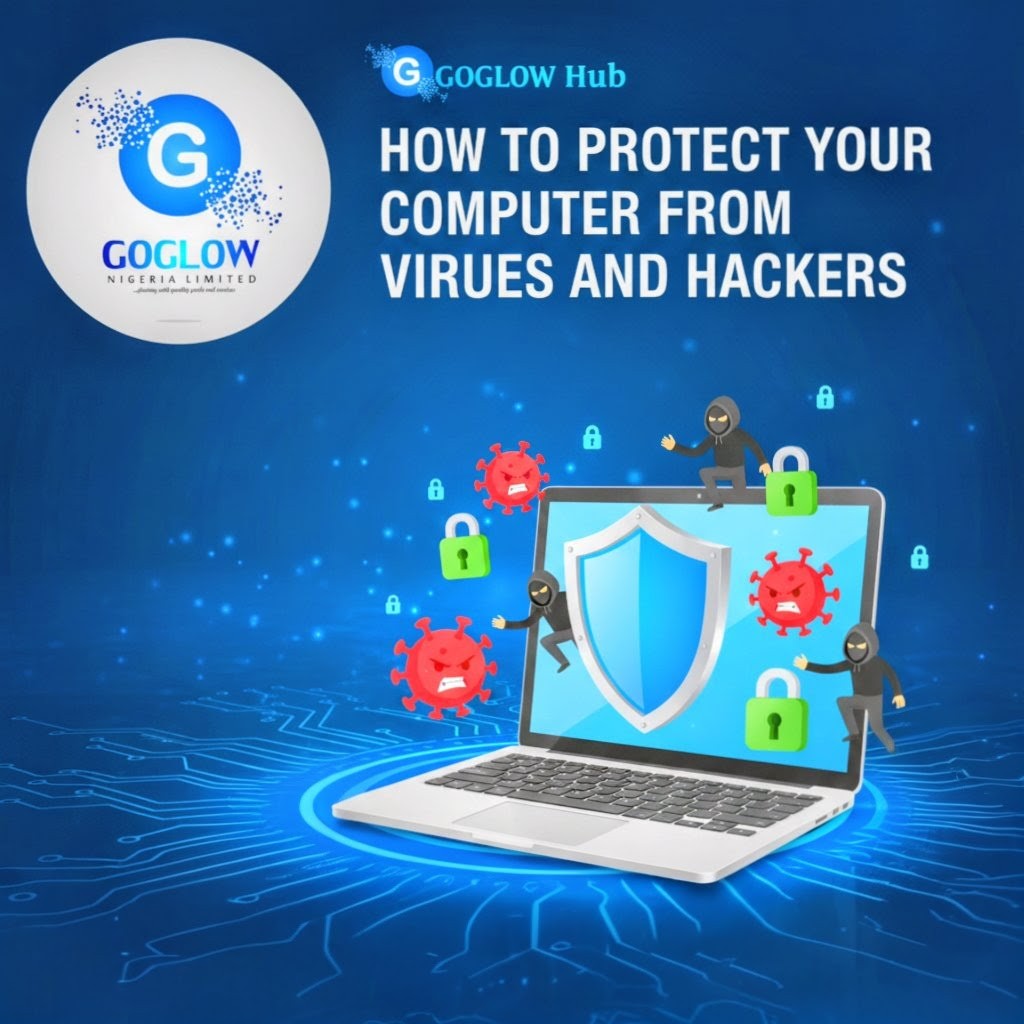
In today’s world, your computer is more than just a machine — it’s your office, your classroom, your bank, and sometimes even your best friend. But just like your phone can be stolen, your computer can also be attacked — not physically, but digitally — by viruses and hackers.
Whether you use your computer for school, business, or personal tasks, keeping it safe is a must. Here are simple, practical tips to help you protect your system from viruses and hackers.
1. Install a Trusted Antivirus
An antivirus program is your first line of defense. It scans for harmful files and blocks them before they can damage your system.
✅ Popular options: Windows Defender (free), Avast, Bitdefender, Kaspersky.
➡️ Always keep your antivirus updated to handle new threats.
Hackers often take advantage of outdated systems. Updates contain security patches that fix weaknesses in your OS.
🔁 Turn on automatic updates so your computer stays protected even when you forget.
Avoid using “123456” or your name as your password!
✅ Mix uppercase, lowercase, numbers, and symbols.
💡 Use a password manager like LastPass or Bitwarden to store your passwords safely.
Many viruses come from fake links or email attachments.
🚫 Don’t click suspicious links, even if they look like they came from a friend or your bank.
📩 Always verify before downloading anything.
Avoid doing sensitive tasks (like banking or shopping) on public Wi-Fi.
🔐 Use your mobile hotspot or a trusted network.
For extra protection, use a VPN (Virtual Private Network) to hide your online activity.
If a hacker or virus wipes your data, a backup is your lifesaver.
💾 Use external drives or cloud services like Google Drive or OneDrive to back up your files weekly.
A firewall acts like a digital gatekeeper, blocking unauthorized access to your computer.
🧱 Ensure that your Windows Firewall or security suite’s firewall is always turned on.
Free cracked software often comes with hidden malware.
🎯 Always download apps and programs from official websites or trusted sources.
Even if someone steals your password, 2FA adds an extra layer of protection.
🔐 You’ll get a code sent to your phone or email before login is allowed.
Run regular scans, delete unused apps, and clear temporary files.
🧽 A clean computer runs faster and stays safer.
Cyber threats are everywhere — but with the right habits, you can stay one step ahead. Remember, digital safety isn’t just for IT experts. It’s for everyone who uses a computer — including you.
Stay smart. Stay safe. Stay protected.